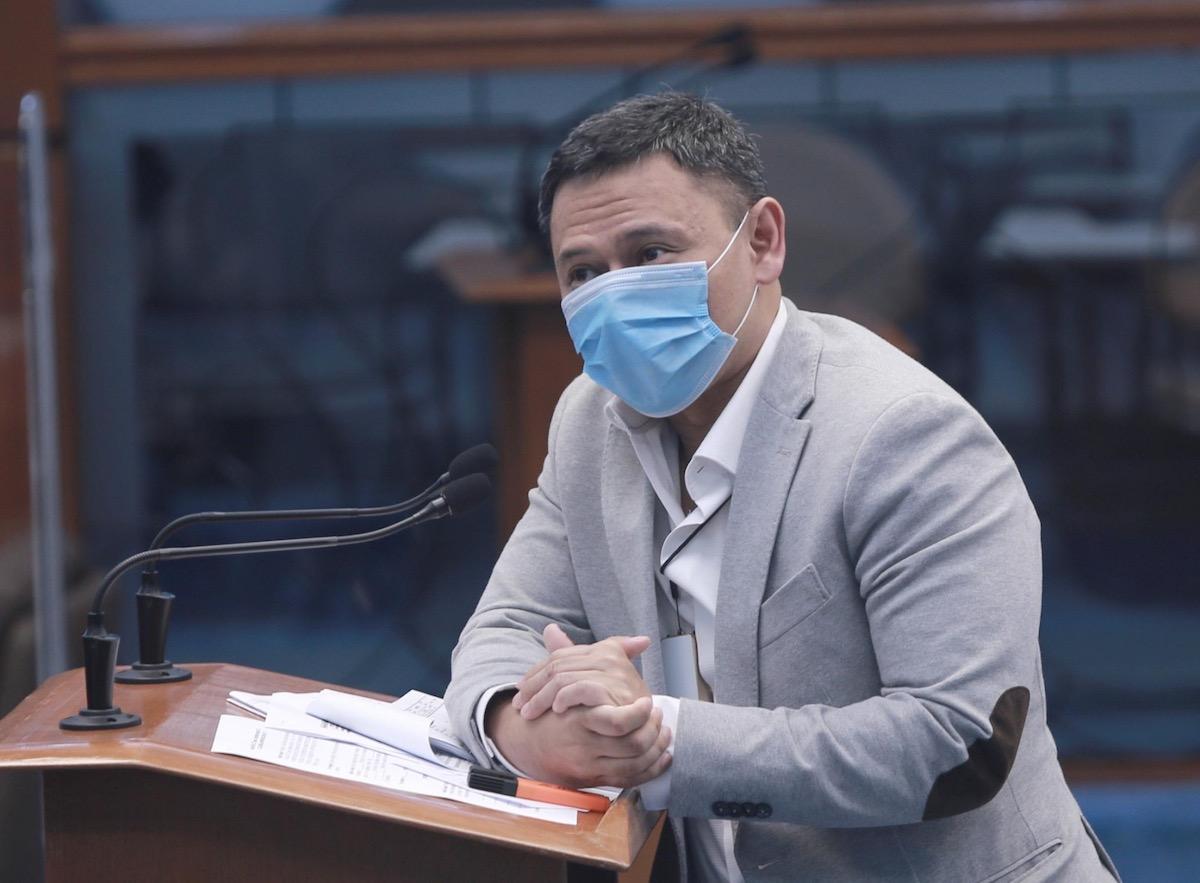Angara calls on FDA to study vaccination of minors against COVID-19

Senator Sonny Angara on Thursday called on the Food and Drug Administration to follow the suit of its counterpart bodies in other countries and start studying the vaccination of persons under 18 years old.
In a statement, Angara said the government must be “ahead of the curve” in terms of expanding the vaccination to other age groups.
The senator cited the decision of the Philippine FDA's counterparts in the United States and Singapore which both allowed the administration of COVID-19 vaccines to 12 to 15 years old.
“This is a signal for us to commence our own independent studies on the matter,” Angara said.
Initially, the US only approved the vaccination of its constituents aged 16 to 85 years old.
Angara said authorizing the use of certain vaccines to certain age groups is the “prudent thing to do.”
“Yung nasa basic education natin, mga 28 million sila. Yung nasa tertiary, mga 3.4 million. If combined, their total population would put them in the Top 50 countries. Bigger than Australia’s 25 million,” Angara pointed out.
(In basic education schools alone, there are 28 million Filipinos while those in the tertiary is at 3.4 million. If combined, their total population would put them in the Top 50 countries. That is bigger than Australia’s 25 million.)
He stressed that vaccinating the school-age children will protect the “largest population group” from COVID-19.
“Outsmarting the virus requires the vaccination of students. There will be no return to normalcy, no herd immunity if they are not vaccinated,” he said.
Furthermore, Angara said vaccinating the younger ones will be a game-changer for the country as well as the economy.
He said children are “barely able to learn under a distance learning setup crippled by poor broadband and lack of digital handsets.”
“If they are last to be vaccinated, then we are creating a lost generation from the left behinds,” he pointed out.
Vaccinating the children will also lead to the return of face-to-face classes which, he said, would liberate parents who have become teachers in a homeschool setting.
The economy will likewise benefit from the opening of schools as it will open economic activities in the transportation sector, food services, and garment industry.
The Senate finance committee chairman also noted that the cost of vaccines is cheaper than the cost of modules and internet services for distance learning.
A roadmap for children’s vaccination was also suggested by the lawmaker as the Executive Department and Congress is set to prepare the budget for the Department of Education in 2022.
Currently, the Philippine government is vaccinating Filipinos 18 years old and above.
The groups that are currently prioritized in the vaccination program are the medical frontliners, senior citizens, persons with comorbidities, the economic frontliners, and the indigent population.
So far, the government has already administered over 3 million COVID-19 doses as of May 16.—AOL, GMA News



